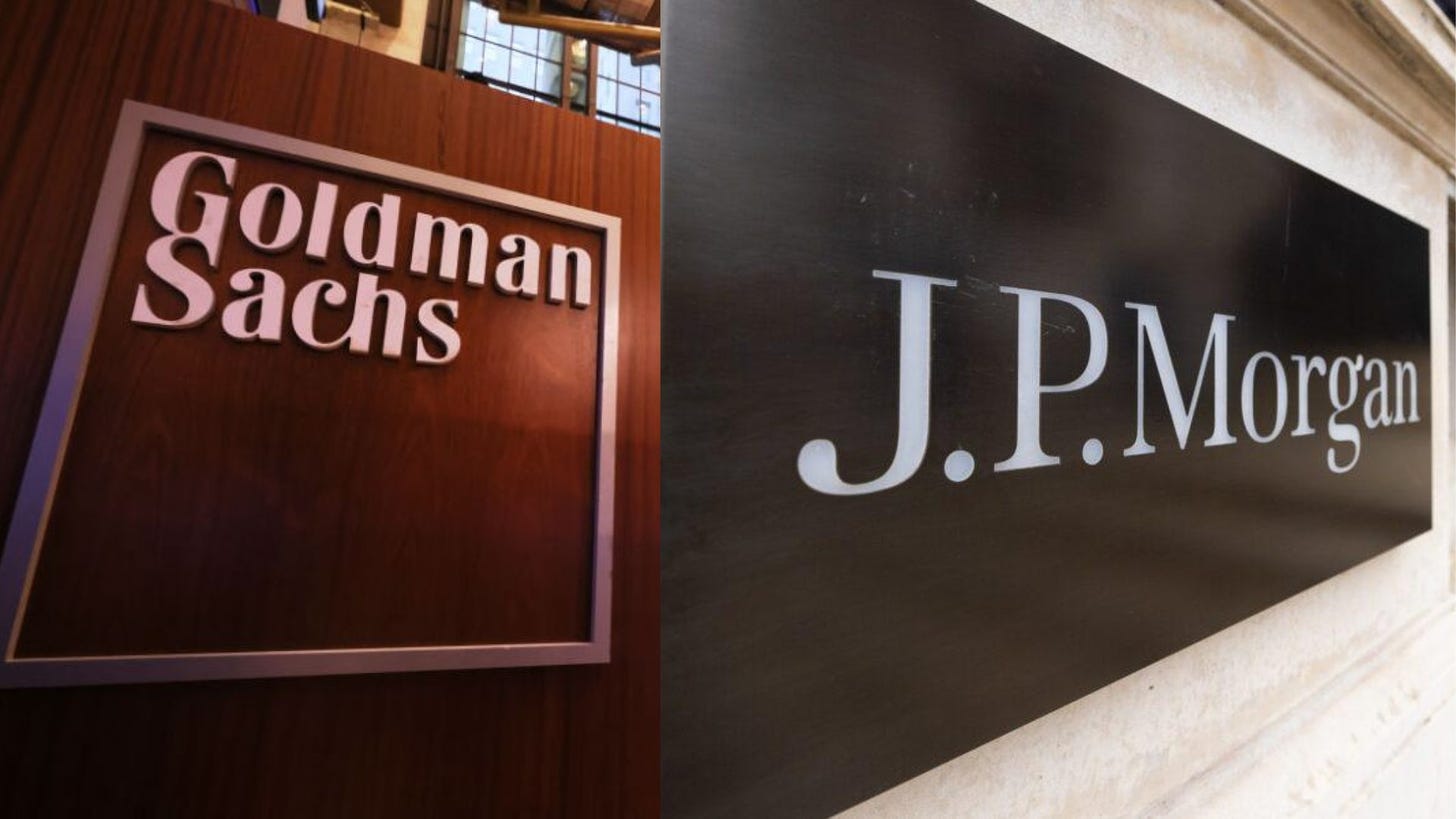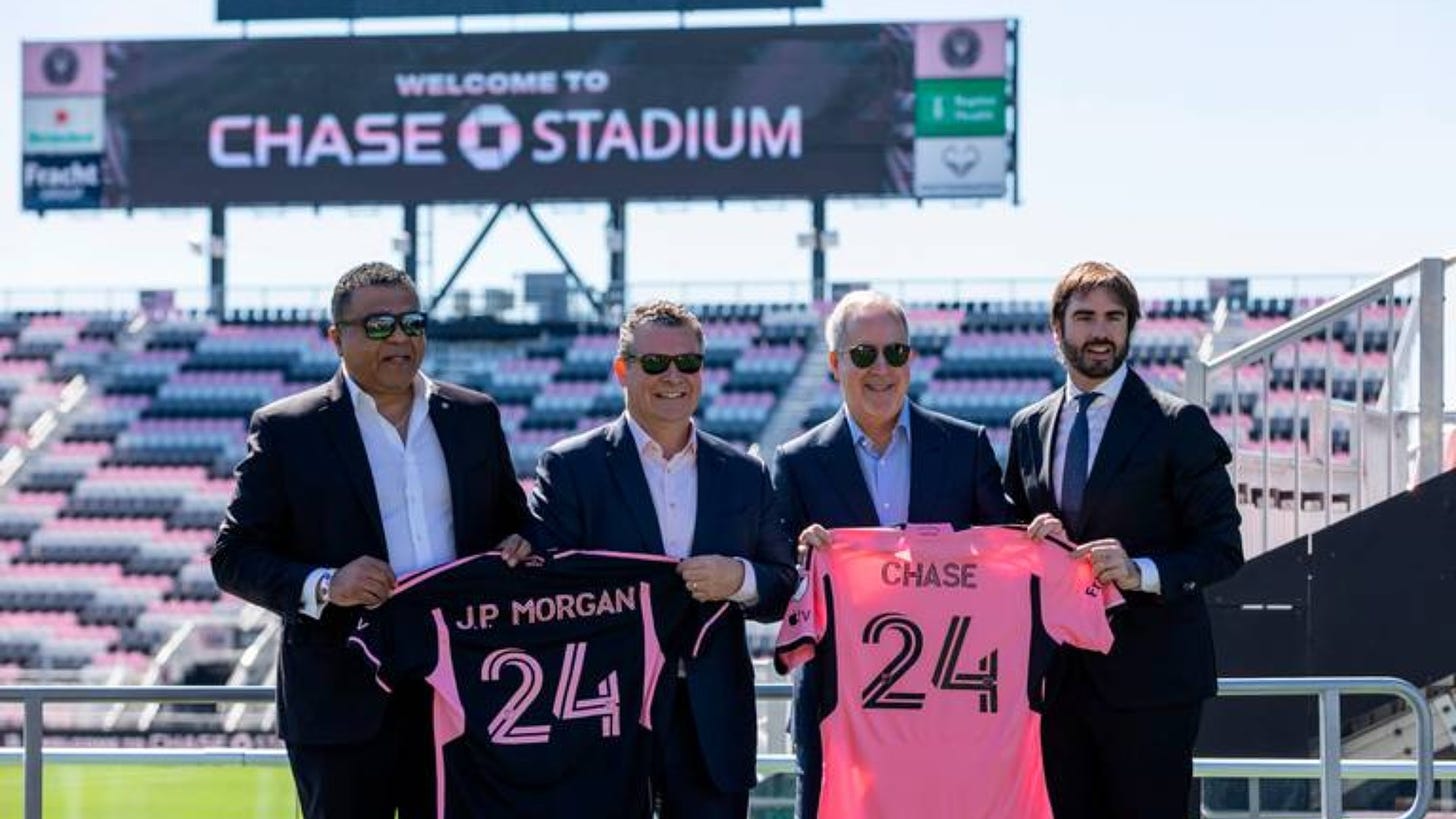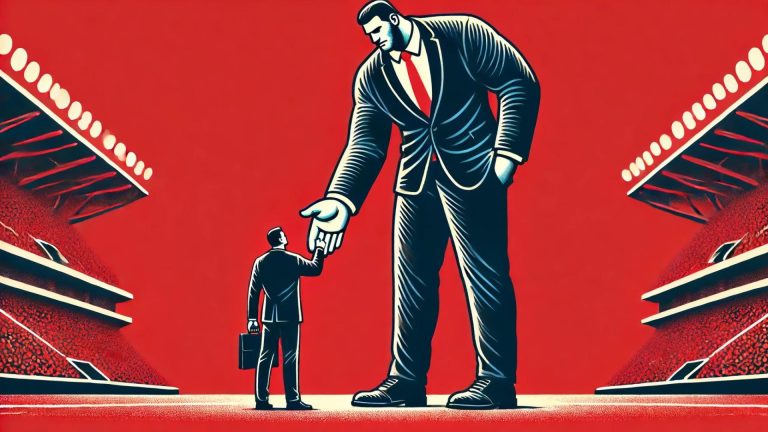JP Morgan, Goldman Sachs, and investment banks are poised to impact the sports world significantly.
The financial giants recently established dedicated sports divisions.
The goal?
To assist investors in acquiring sports teams (as the asset class becomes more attractive).
Let’s Dive In 👇
From Billionaires to Banks
Historically, the allure of owning a sports franchise was linked to personal prestige or a deep-seated love for the game — seen as a hobby for billionaires rather than a serious investment.
This view is rapidly changing.
The strategic entry of JP Morgan and Goldman Sachs into the sports franchise market is a clear indicator of a broader shift.

Sports teams are now being recognized as lucrative investment opportunities, attracting corporate and institutional investors.
We’ve seen:
- Saudi Arabia and SRJ Investments
- Arctos Sports Partners raise $4.1B
- Qatar and its sovereign wealth fund
Sports are seeing a departure from the conventional ownership model…
And foreshadowing a future where banks, wealth funds, private equity, and maybe even the public owning teams through crowdfunding or IPOs.
Banks Enter Sports
JP Morgan and Goldman Sachs are aggressively investing in sports — with a keen interest in European soccer.
- The sale of Chelsea ($3.2B)
- The Camp Nou Stadium ($1.6B)
- The renovated Santiago Bernabeu ($1.5B)
- Sir Jim Ratcliffe’s partial purchase of Manchester United ($1.6B)

Bank’s involvement in sports is changing the management landscape of these clubs, raising questions about the potential impact of their influence.
A notable example of what their involvement could lead to…
The attempted launch of the soccer Super League, which JP Morgan backed.
Mechanics of Banks in Sports
Investment banks are leveraging their expertise in finance to carve out a niche in sports ownership.
By setting up specialized units focused on sports franchises, these banks are not only facilitating the purchase and sale of teams but also advising on:
- sponsorships
- financial structuring
- revenue optimization

Their role has become central to the operation and growth of sports teams, signaling a move towards more corporate governance structures in sports.
Banks are aiming to cement themselves as indispensable partners in the sports industry.
Implications for Sports
The entry of investment banks into sports ownership is reshaping the governance of teams and leagues.
With a focus on profitability and financial sustainability, these banks bring a corporate discipline to sports management — potentially clashing with traditional sports values.
It can be a double-edged sword:
- A focus on profitability and sustainability can inject much-needed capital and efficiency into the management of sports franchises.
- But it can also commercialize sports taking away from the passion and light-hearted values around it.

We’re going from a traditional, perhaps more sentimental approach to managing clubs to a more business-oriented model.
For the legions of fans who support their teams with fervent loyalty, the increasing involvement of investment banks is met with mixed emotions.
- On one side, it promises financial stability and possibly greater investments in player development and stadium facilities.
- On the other, there’s apprehension that the soul of their clubs might be compromised for profitability.
Looking Ahead
The foray of investment banks like JP Morgan and Goldman Sachs into sports team ownership is more than a fleeting trend—it’s a pivotal shift.
The question is no longer if more investment banks will enter the sports arena, but how deeply they will embed themselves within it.

As we peer into the horizon, the involvement of financial institutions in sports will deepen, with implications far beyond the current landscape.
Next, I think we see:
- NFL start accepting PE money
- College football and basketball professionalize
- Bold attempts to globalize sports through single leagues
Sports are in the early innings of MASSIVE change.









